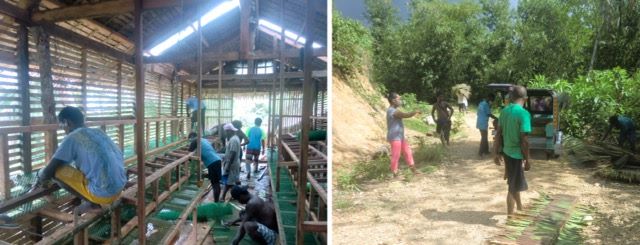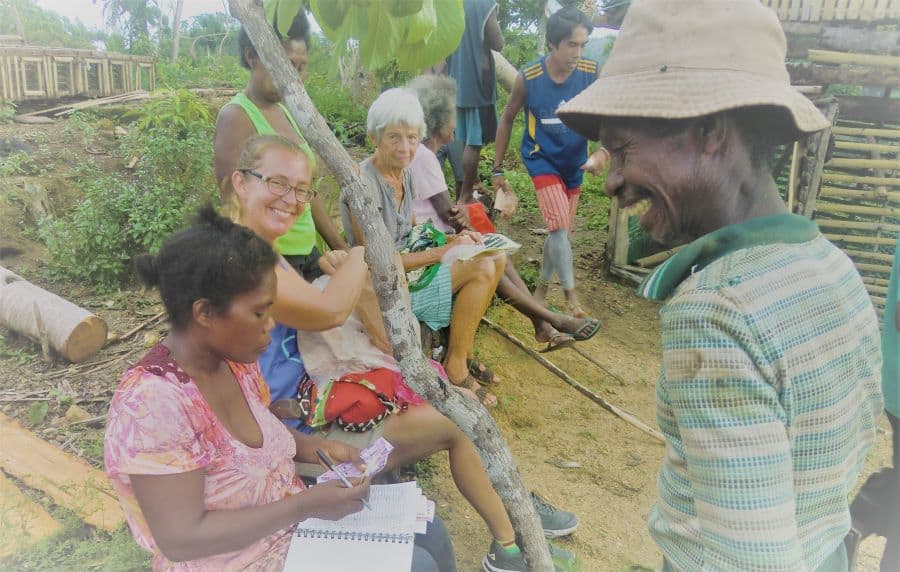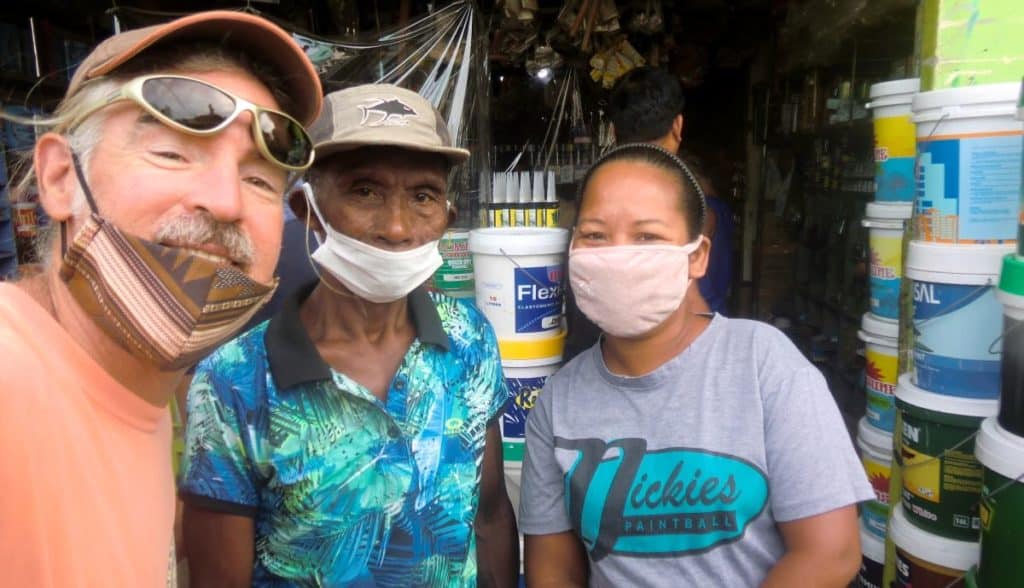Last Updated on October 27, 2024 by Ellen
Editor’s note: Ati Chief Ernesto Coching died in 2023. Those shocking details of his tragic death are in this post.
If you’d have told me a year ago – or really, at any time in my 57 years – that one of my most frequent and favored activities would be shopping with members of an indigenous Asian tribal group, I’d have wondered what planet you were from.
But the planet we do inhabit has changed. And such shopping has indeed become one of the highlights of my early retired, budget travel lifestyle.
The indigenous tribe is the Ati; a people living in the central Philippines where we are waiting out the global pandemic shutdown. It is estimated that the Ati came to the Philippines some 20-30,000 years ago via land bridge from Borneo. Apparently they were Earth Vagabonds, too.
In the last month, we’ve become acquainted with the Ati living near us in Malay, Aklan on Panay Island. Like many people worldwide, the coronavirus crisis has hurt Ati incomes and employment and caused hardship. In addition, the Ati were already struggling to recover from typhoon Ursula.

To provide some work and wages for Ati tribe members we agreed to sponsor some community sustainability and rehab projects. With the help of donations from our blog readers, families, and friends we’ve rebuilt a hen house, prepared for new electric service, and started drinking water system upgrades.
Of course, projects like these require building materials – lots of them. And that is how I’ve come to spend much of my time in the last month seeking, buying, and transporting supplies with these ‘foreign’ people.
Supply shopping with Ati members
We are undoubtedly a sight. An American traveler traipsing around town – in a motorcycle with sidecar – with the native Ati Chieftain (Ernesto) and the tribal Secretary (Glory). Naturally, it is the Ati who ‘direct things’. They know where the best stores and prices are for what we need. And without them (pictured at the top of this post) I would have a difficult time even communicating. I don’t speak Tagalog.
Truthfully, even my communication with the Chief is spotty. He knows various local languages, but little English. Glory is the translator. Overall, we have good working relationship – and our frequent shopping trips are usually efficient and fun.

Typically, we roll up to a small retailer and Chief Ernesto engages the staff to find whatever we need: lumber, roofing, nails, cement, plastics, rebar, cinder-blocks, etc. Often the clerks seem confused by my presence and involvement. But they certainly like me ’cause I have the money… lol!
I usually float around taking photos, ask a few questions and smile a lot. And the shopkeepers enjoy interacting with me – in their limited English. Very few westerners are in these establishments – especially during the COVID-19 scare. In fact, business is slow, so they are all glad to have our substantial purchases. I also get a kick out of seeing the Chief catered to by ‘non-Ati’ Filipinos.
Building supply prices
Incidentally, Philippine building supplies are fairly cheap by U.S. standards. Coconut wood 2x4s are less than $2. We paid about 25¢ each for cinder-blocks. Fifty-pound bags of cement are $2.50. And plywood sheets cost $5. Plastics and more ‘exotic’ items are similar to western prices, however.
Due to the pandemic-related supply shortages, we sometimes have to make several stops for specific goods.
Wherever we have purchased our supplies they are usually loaded and tied atop our ‘tricycle’ for slow transport (10 to 15 minutes) back to the Ati lands. Sometimes larger, heavier orders will be delivered for free – often nearly immediately. In either case, all materials then have to be hauled by hand up into the hills to the job sites.
Fulfilling ‘work’ in early retirement
In all, supply shopping with Ati is hardly the ‘retired travel life’ one might envision. Nor is it anything like what we’ve done in our years of global wandering and exploring. But in many ways this is just as fun — and even more satisfying than sightseeing and beachcombing.
We know we are helping folks in tough times. We can see the progress and improvements in the Ati community. And we take personal satisfaction in showing that, despite all the world’s ugly problems, regular Americans do care about other peoples and cultures and are eager to help those who are less fortunate.
As always, be thankful and generous, happy trails & more beer.
Life is NOW!
Thanks for reading, “Supply shopping with Ati members – a Philippine indigenous tribe.”

What to read next:

